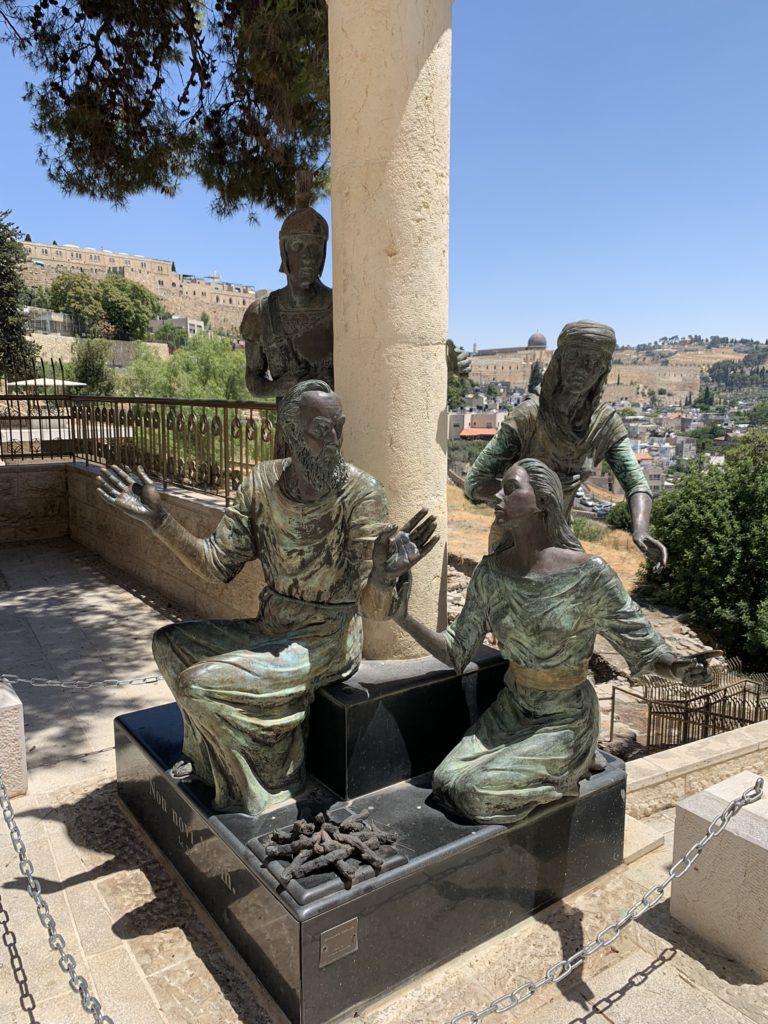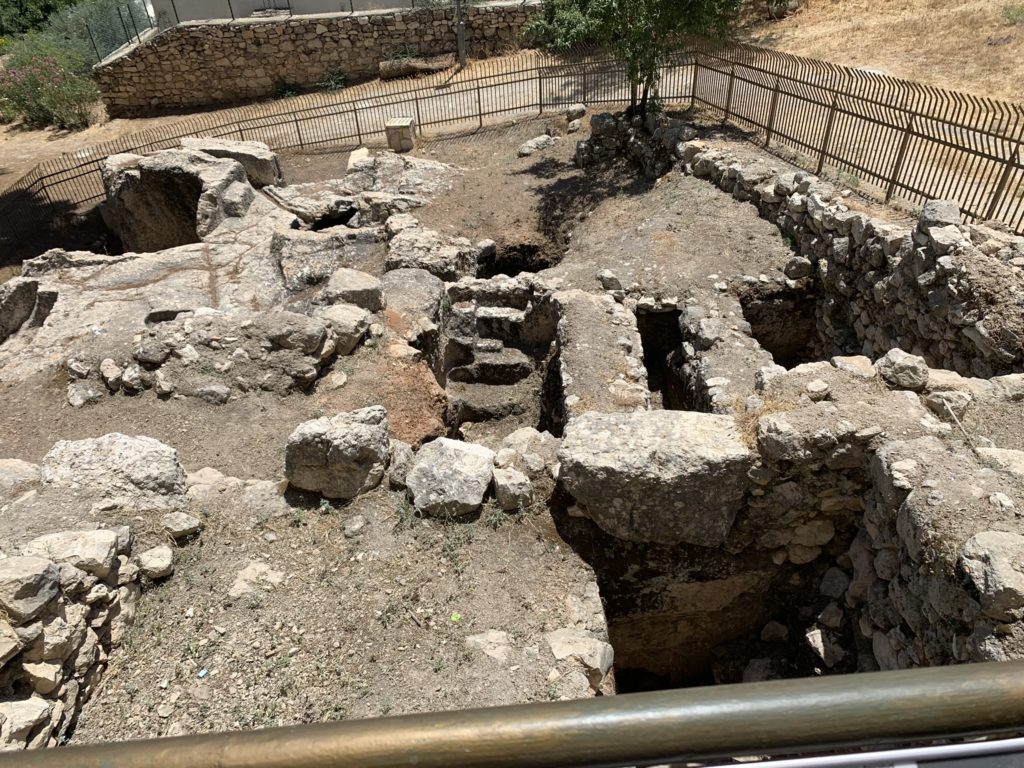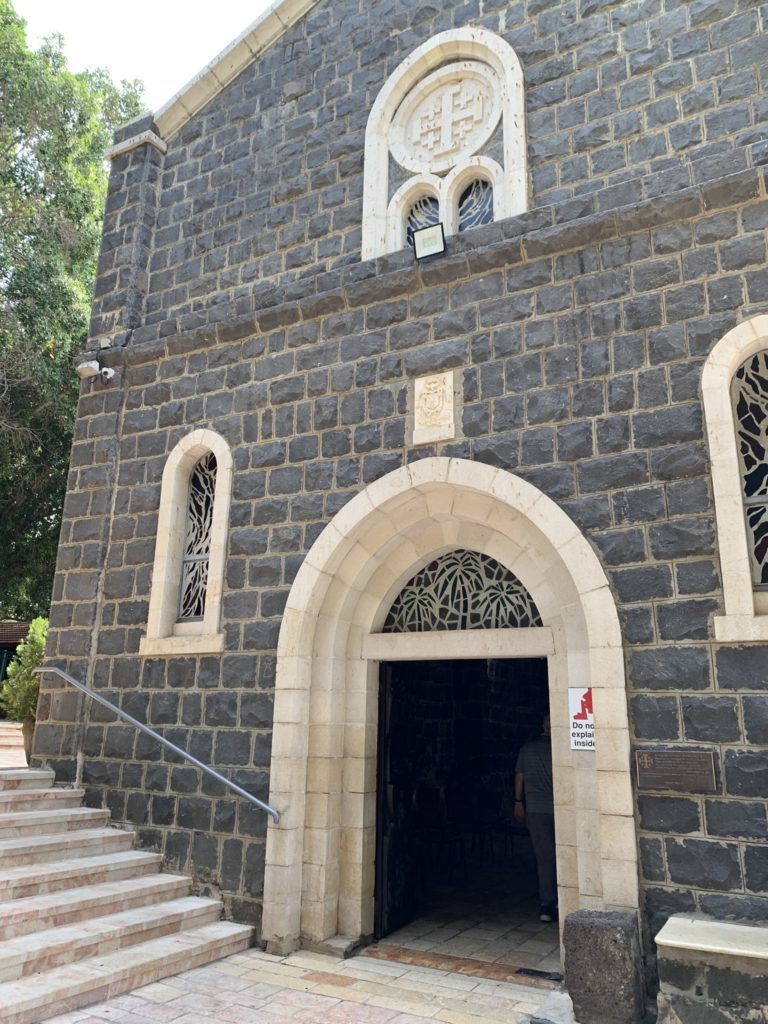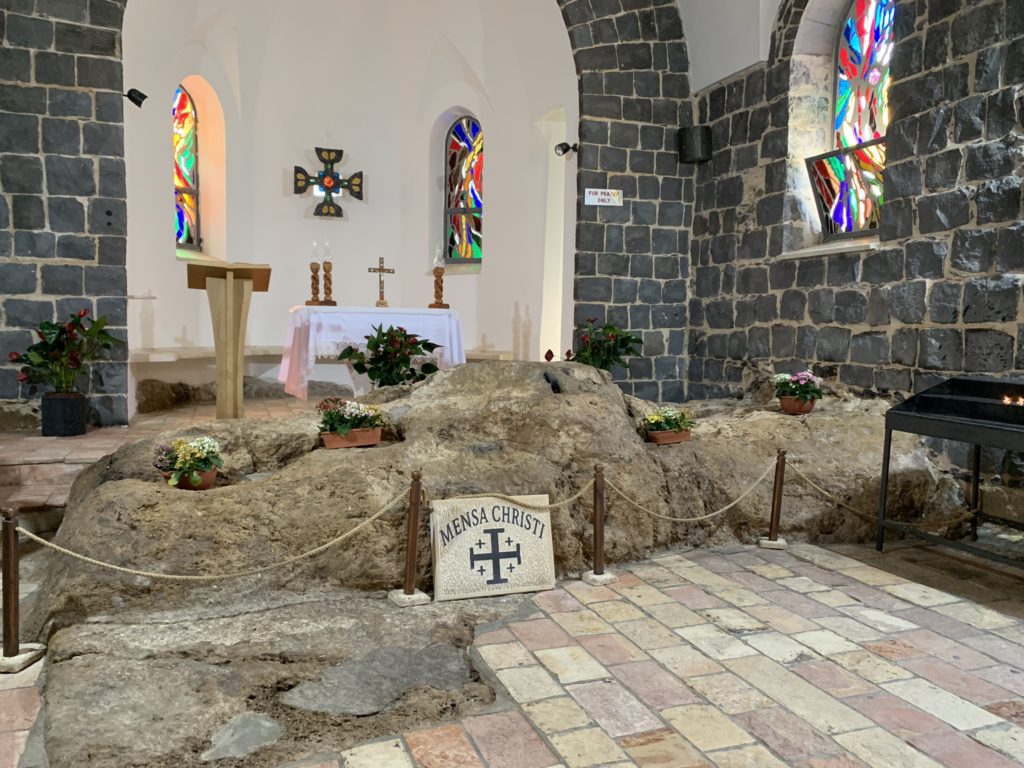“The woman asked Peter, “You’re not one of that man’s disciples, are you?” “No,” he said, “I am not.” Because it was cold, the household servants and the guards had made a charcoal fire. They stood around it, warming themselves and Peter stood with them, warming himself.” (John 18:17-18 NLT)

It’s interesting to me how John’s gospel reveals his tendency to interpret everything Jesus said and did in terms of relationship. Our first clue to this is found in his favorite term for himself: the beloved disciple. But we also find John including relational details that other gospels overlook. In this chapter, we find that Peter has only gained entrance to the high priest’s courtyard by way of connection with another disciple, one who knew the high priest. He stood outside in the night until he was invited in by this unnamed disciple’s influence. This additional information makes Peter’s denial all the more ludicrous. Peter was literally let inside the gate that night because of his proximity to Jesus’ inner circle, yet he denied knowing Jesus three times. He pleaded innocent on the accusation of knowing the Messiah. My heart hurts just typing that out, knowing full well that on my worst day, I’m more than capable of the kind of betrayal.

A friend of mine recently pointed out the detail – ‘charcoal fire’ – in the KJV it’s described as a fire of coals. Think about it for a moment and you can immediately bring to mind the scent that accompanies a charcoal fire. I can picture Peter, hunched over the enemy’s flame amidst the darkest, coldest hours of his soul. Trauma writes a memory in double time, doesn’t it? Psychologists refer to this as the Matrix Effect (think of Neo’s slow-motion bullet dodging). In moments of extreme pain or danger, our brain actually accesses additional storage space and starts writing memories in double-time. Our system somehow knows “This is crucial information. I need to pay close attention.” This is why three years later, I can still remember the exact light temperature of the room and the last normal thought I had in my head as I answered the phone and found out my dad had been in a terrible automobile accident. Similarly, Peter’s brain was surely working overtime that night. I would imagine he’d recall every detail: the smell fire, the brash tone of the servant girl, the glint of the armored guards, the crash of his heart pounding in his chest as he betrayed his beloved Messiah.
Peter could very well have gotten stuck there; held hostage by his failure amid Jesus’ last hours on earth, haunted by his own hollow words of faithlessness. If we turn a few pages ahead, we find Peter attempting to return to his life before Christ. His internship was over and he was convinced he didn’t make the cut. He did what we all tend to do, he went back to what he knew. Failure sends us back to less-complicated routines. Peter was out on the boat, all night, with empty nets.
But early in the morning, a voice called out to him from across the waters. A man on shore insisted, “Throw your net on the right side.” Obedience brought abundance. And the reenactment of an earlier Jesus encounter; Peter recognized His Savior and threw himself into the water to rush to the shore.
“When they got there, they found breakfast waiting for them – fish cooking over a charcoal fire, and some bread.” (John 21:9 NLT)
Join me in this fireside breakfast picnic for a moment. Again with the charcoal fire. Imagine the sight and smell of such a meal. Wouldn’t it be a delight to the senses? The smoke stays with us, doesn’t it? Gets caught in our hair and clothes, the warmth takes away the chill. The colors dance in the flames and hold our attention. The fish and bread; hot, tender, crusty, delights our palates and the fellowship sticks to our souls.
Poor Peter had been living in the matrix effect of his memory; stuck in the repeating script of his failure, but here Jesus was, overwriting his most painful moment with a rich and wonderful new one. The charcoal fire was the same, but it was now dawn, not dark. The scent of the fish cooking and the bread baking intermingled with the burning coals, redeeming the evocation entirely. What’s more, Jesus’ presence was pervasive. Resurrected Messiah plus miraculous catch plus breakfast after an all-nighter; this was sure way to rewrite the ugliest moments Peter was wallowing in.
I read it on Psychology Today; how live’s best moments can force the same sort of cerebral attention. High emotions – good or bad – can alter our perception of time altogether. This is why, almost 23 years later, I can still recall the details of our wedding day; the way I felt, the texture of my dress, the warmth of the room and the joy of our friends and family. I’m almost glad it was pre-social media because I’m sure the images and status updates could not hold a candle to my perception of those most precious hours.
Jesus, of course, knew all this with His pal Peter. He knows exactly how our brains are hardwired because He had a heavy hand in the original design. His post-resurrection picnic encounter with Peter was carefully coordinated, meticulously drafted down to the last detail. Jesus was overwriting Peter’s personal trauma that morning, healing the most broken place in his soul and giving him another opportunity to fish for men.

Jesus reinstated Peter in a way that he could not possibly forget. He rewrote Peter’s worst moment with his personal best. Peter might never have sat a campfire again without reliving the glorious restoration he experienced that day.

So what do we learn from all of this?
We realize our deepest, darkest ugly is not beyond the reach and rehabilitation of Jesus. He can step in and rewrite the scene. He can take what the enemy intended for evil, the trauma that has trailed us forever, and transform our pain into something good and Kingdom-benefitting.
Isn’t that exactly what happened at the cross? The ugliest moment in human history in human history, given over to the hands of a holy God, was somehow rearranged into redemption; salvation for the very people that pinned Jesus to His cross.
“He cancelled the record that contained the charges against us. He took it and destroyed it by nailing it to Christ’s cross. In this way, God disarmed the evil rulers and authorities. He shamed them publicly by His victory over them on the cross of Christ.” (Colossians 2:14-15 NLT)
My pastor calls instances like these ‘mockery moments’. When God takes the ugly, the thing that the enemy intended to use to destroy us, and redeems it entirely. Jesus did this on the cross. He didn’t triumph over the people who cried “Crucify!”, He triumphed over evil. He made a mockery of the plans and agendas of the enemy. And He redeems all those who will believe in Him.
I, for one, believe in the power of God to take our most painful places and turn them into our most powerful places. This happens when, like Peter, we respond to Jesus’ invitation to return, to re-enter the memory with Him, and allow Him full access to rewrite it completely.
The truth is; we go back to that moment all the time. We just go without God’s power and presence and then the ugly awful still has a hold on us. The trick is; we need to invite the Lord into our greatest failure or most painful abrasion and allow Him to edit the script with His presence and perspective. That’s the key to our healing, growth and recovery.
There’s a song about Jesus standing in the fire with us. It’s referring to Daniel’s friends in the furnace and how the angel of the Lord was counted with them. In prayer, yesterday, this song came on as I was inviting Jesus into some old and painful places. He reminded me, He’s in the fire with us. He brings right perspective to our most aching memories. He comes with healing in hand, ready to turn the ugly into lovely as only He can.
Lord, today we realize that You are happy to stand in the fire with us. We have needlessly suffered alone all this time. Please invade our memories and rewrite them with Your power and presence. Redeem loss and sorrow and failure as only You can. We are open to Your intervention and welcome Your healing. Have Your way in us. Amen.